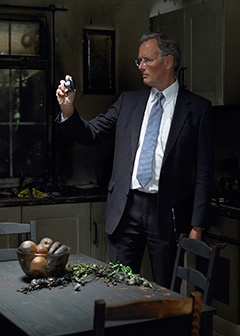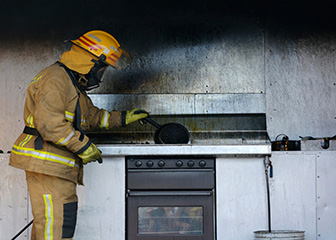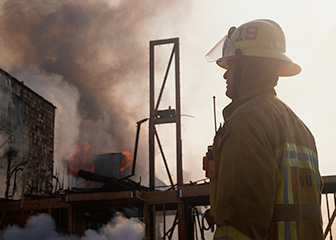Summary

| Quick Facts: Fire Inspectors and Investigators | |
|---|---|
|
$52,230 per year
$25.11 per hour |
|
| High school diploma or equivalent | |
| More than 5 years | |
| Moderate-term on-the-job training | |
| 13,600 | |
| 9% (Slower than average) | |
| 1,200 | |
What Fire Inspectors and Investigators Do
Fire inspectors visit and inspect buildings and other structures, such as sports arenas and shopping malls, to search for fire hazards and to ensure that federal, state, and local fire codes are met. They also test and inspect fire protection and fire extinguishing equipment to ensure that it works. Fire investigators determine the origin and cause of fires by searching the surrounding scene and collecting evidence.
Work Environment
Fire inspectors and investigators work both in offices and in the field. In the field, inspectors examine public buildings and multi-family residential buildings. Investigators survey the scene where a fire has occurred.
How to Become a Fire Inspector or Investigator
Most fire inspectors and investigators have a high school diploma and experience working in either a fire or police department. They attend training academies and receive on-the-job training in inspection or investigation.
Pay
The median annual wage of fire inspectors and investigators was $52,230 in May 2010.
Job Outlook
Employment of fire inspectors and investigators is expected to grow 9 percent from 2010 to 2020, slower than the average for all occupations. As cities and other areas grow, there are more buildings to inspect and more fires to investigate. Employment of fire inspectors and investigators should grow as the population does.
Similar Occupations
Compare the job duties, education, job growth, and pay of fire inspectors and investigators with similar occupations.
O*NET
O*NET provides comprehensive information on key characteristics of workers and occupations.
Contacts for More Information
Learn more about fire inspectors and investigators by contacting these additional resources.






